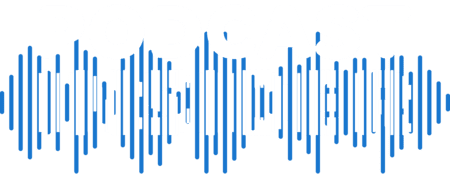 Google made news last week when the announced a strategy to put podcasts front and center in its content offerings. In fact, according to Google Podcasts Product Manager Zack Reneau-Wedeen, the company has a bold and ambitious goal to double the amount of podcast listening worldwide over just the next couple of years.
Google made news last week when the announced a strategy to put podcasts front and center in its content offerings. In fact, according to Google Podcasts Product Manager Zack Reneau-Wedeen, the company has a bold and ambitious goal to double the amount of podcast listening worldwide over just the next couple of years.
For years Google has prioritized text, images, and video in search results. With Google’s new podcast strategy, podcasts will join this elite class of content and enjoy enhanced ranking on Google search.
That’s good news for podcasters, but great news for PowerPress, Blubrry WordPress Website and PodcastMirror users, because Blubrry services meet all of Google’s requirements for promotion and distribution.
Your Feed Matters.
By “owning your podcast feed” – which you do, when PowerPress / Blubrry WordPress Website originates your feed from your website or PodcastMirror which mirrors the metadata in your original feed – your podcast is positioned to take care of this Google search advantage. On the other hand, if your podcast host owns your podcast feed and the links to the episodes and home page link back to your host, it’s your host that will get the benefit of your show’s new search ranking. Those using Blubrry service offerings are in the best possible position as they do not need to make any changes to how they are publishing their shows.
In addition to search discovery, Google’s podcast strategy also will include a plan to recommend podcast content – for example, if someone searches “new diets”, Google might suggest your paleo-eating podcast. This recommendation could happen at the program level, or Google might recommend a specific episode. So, having a centralized podcast website with good show notes and descriptive titles, podcasts can compete with big shows even if they aren’t part of a large network or podcast hosting company. Since podcasts will be recommended based on content, as long as your content is of high value to the listener, your show can be recommended.
Again, the best practice here is that your podcast has a dedicated website, that your podcast feed metadata links to your website, and that you employ good practices of writing descriptive titles and descriptions for each episode you produce. With all those things in place, your podcast will be positioned to take full advantage of audio SEO, and you’ll be able to target Google search results, recommendations within Google, and will even be able to be utilized by smart speakers like Google Home.
Blubrry has been ahead of the curve on this for a number of years in helping podcasters through the Podcast SEO settings in PowerPress to optimize whats in the feed versus what is on the public website. With the metadata always linking back to your brand. Blubrry Podcasting uses the absolute best practices in the space and the beauty is the strategy we have promoted for years aligns perfectly with Google’s strategy.
A big part of the new strategy from Google is curating content for listeners based on their needs and listening habits – i.e. cueing up your travel show based on a listener’s Google Maps use, or news when the listener is on his or her commute. Google may also remember the show that was last played to allow a listener to continue where they left off when they switch from listening in their car commute to listening on their laptop at work or on your Google Home device – so planning for your episode to be consumed across multiple devices is a must. It’s exciting stuff for podcasters, but making sure your podcast is optimized to align with Google’s new strategy is the first step, and key to taking advantage of the growth.
To take full advantage of Google’s new podcast growth strategy, your podcast website and feed must meet these requirements:
- Expose a valid RSS feed of your podcast.
- Feed must contain at least one episode
- Feed must have a dedicated <link> to your podcast’s homepage.
- The “home page”, RSS feed and audio must be index-able by googlebot. (URLs must not be protected by robots.txt or <noindex> tags)
- The “home page” must include the RSS feed meta tag
PowerPress has had supported these requirements through the Podcasting SEO settings in PowerPress. PowerPress 7.4+ will have all of these requirements enabled by default. If you have a previous version of PowerPress, just check the Podcasting SEO settings and enable the Podcast Directory SEO Guidance setting, and you’ll be all set to take full advantage of Google’s efforts to rapidly increase your podcast audience.





